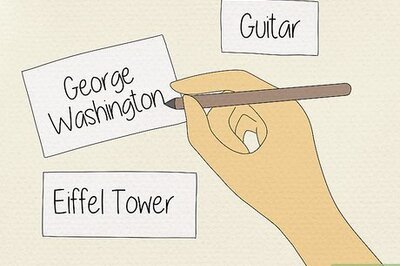
views
What would you say if you found your 12-year-old watching people being beheaded, mutilated bodies and human beings, either dead or suffering? Or if your 10-year-old daughter demanded a breast implant? Or would you prefer your 15-year-old were part of an online suicide cult?
The latest entrant into the list of child predators – along with pedophiles and teachers who dish out corporal punishment – is the World Wide Web. According to a 1999 report published by the US Senate Committee, “by age 18 a child will have seen 16,000 simulated murders and 200,000 acts of violence.” Through movies, television, video games, newspapers and the mother of all database, the Internet. Increasingly adults and children alike are getting addicted to violence and violent imagery on the Internet and the terminology being used for this addiction is 'violent-porn'.
How would you feel if one of your deceased relatives’ pictures suddenly popped up on a website that publishes real pictures of dead people, those in accidents, with mutilated limbs and suicide pictures taken from police files?
One such family wrote to a website claiming the site had put up a picture that showed the mangled body of their nephew, who had killed himself by getting in the path of a train. They requested the site to remove the picture. The website replied, “We ask that, in the future, this family conduct their suicides in a less public manner.” Sensitive, right?
Freedom of speech and expression are beautiful tenets of this modern world. But does it stop somewhere, should it? What is worrying – more than the presence of such sites – is the fact that it is the susceptible minds of children that are getting hooked.
Popular sites such as ‘Who Would You Kill’ and ‘New Grounds’ focus on killing off celebrities of your choice. The latter is the 12th most popular site for boys aged 11-12 years old. If it’s violence for the boys, it’s plastic surgery for the girls. The Daily Mail reported how a new Internet video game called ‘Bimbo’ has caught the fancy of young girls. Launched a month ago the game has nearly 200,000 British players, most aged 9-16 years.
What’s wrong with the game? Nothing if you see it as a spoof. But does a 9-year-old understand it’s a spoof when she orders breast implants for her ‘Bimbo’ or puts her ‘Bimbo’ on dieting pills? Is it all harmless fun or are we looking at a generation of young girls growing up thinking bigger breasts and a stick-thin figure are what they need and young boys learning to love violence and mutilation? Or are we all over-reacting?
Next Page >>> Who’s responsibility is it?
PAGE_BREAK
Internet censorship is a touchy topic. From blogs to opinion pieces to sites on almost everything conceivable by the human mind and every kind of perversion, the Internet signifies the ultimate freedom of expression. What makes this freedom even more significant is the pervasive reach of the Internet. However, can one deny or turn away from the ramifications of having ANYTHING on the Net, particularly when children become the target audience?
Latest research by F-Secure, a security site through Internet Service Providers and mobile operators, shows that there is increasing global concern amongst parents. In a January 2008 survey of 1,169 Internet users aged 20-40 across the US, Canada, the UK, France and Germany, a whopping 92.5 per cent parents feared their children are exposed to questionable material online. F-Secure also found that despite widespread availability of parental controls for Internet usage, parents are fearful about their children's safety while using the Internet.
What really happens when your child is continuously exposed to violence and ‘questionable material’?
Joanne Cantor, a psychologist at the University of Wisconsin in Madison feels that steady exposure as a child to violent screen images can make young adults more likely to turn to violence themselves. A recent study by the University of Michigan also came up with similar results. “I have no doubt that our culture today has a coarsening effect,” she Cantor and adds, “The more you live in a world where violence and hostility are the norm, the more you adopt a hostile mental framework.”
School shoot outs, children clubbing each other to death, rape by minors and suicides being triggered due to Internet cult groups, what are we going to see next and is there something parents can do about it?
“Parents are clearly aware of the potential dangers facing their children online, but it is saddening that more don't feel empowered to protect their children by limiting their time online and controlling the content they're exposed to,” says Pär Andler, Director of Communications and Brand at F-Secure. He is right.
So far the only solution seems to be controlling/ restricting the time your child spends on the Internet and using Internet filters that help shield children from sites like these. Yet the worrying truth is: You cannot monitor them all the time and it’s easy for children to find a friend with an unfiltered computer. What then and what is going to be the cost of freedom of expression?
Should content on the Internet be regulated?
Feel free to share your thoughts and comments using the feedback section. If you have other ideas and suggestions for a feature you would like to read, mail the author at [email protected]














Comments
0 comment